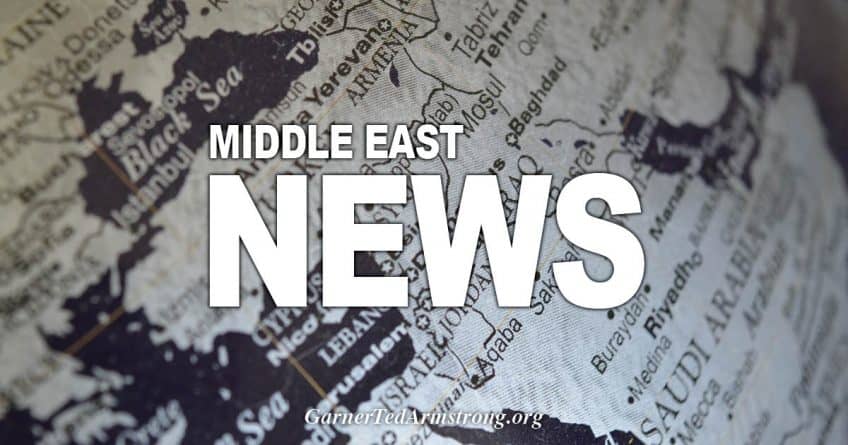
Protesters in Iraq. (AFP)
Popular protests have been sweeping the southern region of Iraq’s Basra since July 8. The people have been demanding better services and an end to rampant corruption that has deprived them of the revenues of this oil-rich region.
Similar frustration is felt throughout Iraq over deteriorating services and this has been the case since the fall of the Saddam Hussein regime in 2003. Topping these services is electricity. Regions have been witnessing more and more frequent power cuts this month after Iran stopped selling power to Iraq, citing a lack of surplus, said Iranian sources. Other sources revealed, however, that the real reason was the Iraqi government’s failure to pay its dues to Tehran.
History often repeats itself in Iraq. Floods, epidemics, foreign invasions and internal revolts. The image is the same in each cycle: That of a tragedy and farce.
It is tragic that Iraq, one of the world’s top oil producers, has been suffering from extreme power cuts for over ten years. This has left the people frustrated and its impact has been felt on the economy.
Electricity was not the only factor in sparking the latest round of protests.
The system of general services is witnessing a complete collapse. Even water is scarce in a country that boasts the Euphrates and Tigris Rivers. Protesters have not only been speaking out against a lack of electricity, but a lack of water and job opportunities for graduates. They are also protesting against a housing crisis, transportation problems, environmental pollution and poor health and education services.
Rampant corruption
Administrative and financial corruption are at the heart of Iraq’s tragedy. The Iraqis complain that they are not reaping the revenues of their oil wealth. Billions of dollars disappear without a trace every year. They are seized by the bureaucrats of state agencies that are run by several influential parties at parliament, government and provincial councils. These parties are often Islamic in nature: Shiites dominate central and southern Iraq and Sunnis in the West. Kurdish groups dominate the northern Iraqi Kurdistan Region.
Every year, Iraq regularly ranks among the most corrupt countries in the world. Those accused of corruption are often political leaders, members of cabinet and parliament and other state agencies. This leaves them immune to legal prosecution. They also enjoy the protection of their parties and militias.
Unofficial numbers have spoken of 400 to 600 billion dollars that have been gobbled up by Iraq’s corruption “machine” since 2003. These funds are often sent abroad and therefore do not figure in the local economy, doubling its losses.
Corruption is the product of a system of sectarian and national power-sharing that has been promoted by the influential powers and that they have abused to occupy high-ranking state positions, in violation of the constitution.
Less than two years after the fall of the Saddam regime in 2003, the Iraqis held a referendum on a permanent constitution that was supposed to lay the foundation for a new federal democratic system. The constitution was hastily drafted in 2005 as the country dealt with terrorist threats from the remaining members of the former regime, who had sided with the al-Qaeda group.
Delays in adopting the new constitution and various amendments to it allowed powerful parties to manage the state according to a power-sharing system. They claimed that this system would be applied to one year of parliament’s four-year tenure in a bid to assure other forces that their rights will be ensured when the new political system is adopted. Under the power-sharing system, the president should be Kurdish, the prime minister Shiite and the parliament speaker Sunni. Other state positions also followed such sectarian lines.
Partisan camps
Such a division of power led to the emergence of partisan camps that have violated public funds generated from oil revenues that in some years exceeded $100 billions. This unprecedented theft of state funds left Iraq unable to meet the needs of its economic, social and cultural sectors, which it desperately needed at the end of the age of dictatorship and years of war.
Moreover, fighting between the ruling parties themselves over power and wealth was one of the main factors that sparked the armed Sunni-Shiite strife in Iraq. These parties reinforced the idea of the “benefit” of such a sectarian conflict in order to garner more supporters, especially during times of elections.
Successive governments used the excuse of terrorism and sectarian civil war to justify the delay in fulfilling their pledges to the people.
By 2010, al-Qaeda was defeated and the military and police forces were bolstered by the international coalition. The living conditions for Iraqis, however, continued their downward spiral despite a major spike in oil revenues.
With the backdrop of the so-called Arab Spring in 2011, protests were held in Baghdad, Basra, Mosul and other cities over poor services and rising poverty and unemployment. They demanded political reforms that would culminate in a constitutional amendment and an end to the power-sharing system.
The government of then Prime Minister and leader of the Islamic Dawa party Nouri al-Maliki met a February 25, 2011 call for demonstrations with extreme hostility. It used force to quell the protests. When these brutal measures did not end the weeks-long protest movement, Maliki was forced to acknowledge the validity of its demands, pledging to meet them, but he did nothing.
A fresh round of protests erupted in late 2012 and early 2013 in Sunni regions in the West. The demonstrators chanted against the marginalization of their province. Government forces again resorted to brute force to suppress them.
The major shock
A few weeks after May 2014 parliamentary elections, the ISIS terrorist group swept a third of Iraqi regions and declared Mosul as the capital of its so-called “caliphate.” The development left the people in major shock, especially amid claims that the Iraqi forces, which greatly outnumbered the few hundred ISIS terrorists, had laid down their arms and fled the advancing fighters.
The popular backlash forced the parliament to form an investigation committee to place blame. It spent months compiling a report that has never been published. Leaked details said that it had held then army commander and Prime Minister Maliki and several senior military and political leaders responsible for the calamity.
Ensuing governments headed by Prime Minister Haidar al-Abadi in 2014 and 2015 pledged to combat corruption and the power-sharing system, but none of them have been fulfilled. Protests accompanied the ongoing sense of frustration.
Political reform requires a constitutional amendment and the elimination of the power-sharing system. The adoption of a new electoral law will help break the ruling parties’ hold on power and pump new blood in parliament and provincial councils. The ruling class, however, continued to oppose such proposals by using various excuses, starting with the war on ISIS.
By the time the May parliamentary elections were held, the Iraqis had had enough and they seized the opportunity to punish the political powers, which they said had lost touch with the public. The people, therefore, boycotted the polls, with turnout at 56 percent, although political sources put the figure at over 70. Those who did take part in the elections sought to vote against the political class.
Summer and water
By the time summer came around, a new power crisis coupled with water shortages had erupted in Iraq. Basra bore the brunt of these shortages and its residents took to the streets to protest against the political class and government. The protests spread to the southern and central regions, reaching Baghdad. The rallies were more fierce than those in the past and the people vented their anger against party headquarters, especially Shiite ones, as well as their affiliated militias.
The panic felt by the political class over their hold on power was reflected in the brutality adopted by the security forces in quelling the demonstrations that have left 14 people dead and some 750 wounded. Ninety-one buildings and offices, mostly party and militia headquarters, were set on fire.
This latest round of protests was in fact a new form of vote, this time with blood and fire, against the Islamic political ruling class, some members of which have acknowledged the people’s demands and their own shortcomings. This acknowledgment, however, was not accompanied by any tangible government or partisan measure to appease the people.
[Disclaimer]









